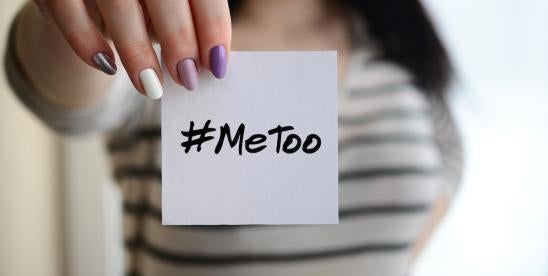Earlier this year, Utah joined the growing number of states to enact legislation to ban employers from requiring confidentiality clauses or agreements that block employees from speaking openly about sexual misconduct allegations in the workplace.
On March 13, 2024, Governor Spencer Cox signed House Bill (HB) 55, titled the “Employment Confidentiality Amendments.” The law prohibits employers from requiring employees to sign nondisclosure agreements (NDAs) or nondisparagement agreements related to allegations of sexual harassment and sexual assault—which have been associated with the #MeToo movement—and makes any such agreement unenforceable.
Quick Hits
- Utah enacted a law that prohibits employers from requiring employees to sign certain nondisclosure or nondisparagement agreements relating to sexual assault or sexual harassment claims as a condition of employment and makes such agreements void and unenforceable.
- The law further prohibits retaliation against an employee who refuses to sign a confidentiality agreement that prohibits disclosure about sexual assault harassment.
- The law took effect immediately and applies retroactively to January 1, 2023.
Confidentiality Clauses
HB 55 adds a section to the Utah Antidiscrimination Act (Utah Code Section 34A-5-114) that makes “confidentiality clause[s],” which are defined as nondisclosure and nondisparagement clauses, related to sexual assault and sexual harassment, required as a condition of employment, void and unenforceable. The law further makes employers that attempt to enforce such agreements in violation of the law liable for costs and attorneys’ fees.
HB 55 also prohibits employers from retaliating against an employee who makes an allegation of sexual assault or harassment or refuses to sign a confidentiality agreement that prohibits disclosure about sexual assault or sexual harassment.
Additionally, the law renders void confidentiality, nondisclosure, and nondisparagement clauses that prohibit employees from disclosing sexual assault or sexual harassment. Under the law, an employee may withdraw a settlement agreement that contains “a confidentiality clause regarding sexual misconduct” within three business days of signing the settlement agreement.
The law defines “nondisclosure clause” as an agreement between employees and employers that “prevents, or has the effect of preventing, an employee from disclosing or discussing:” “sexual assault,” “allegations of sexual assault,” “sexual harassment,” or “allegations of sexual harassment.”
The law defines “non-disparagement clause” as an agreement that “prohibits, or has the effect of prohibiting” employees “from making a negative statement” about employers related to “a claim of sexual assault or sexual harassment,” “a sexual assault dispute,” or “a sexual harassment dispute.”
Exclusions
The law expressly does not apply to confidentiality agreements that prohibit the disclosure of an amount of a monetary settlement or prohibit employers from requiring employees to sign a post-employment restrictive covenant that prohibits the disclosure of the “employer’s non-public trade secrets, proprietary information, or confidential information.” Employees may request a confidentiality agreement that prohibits the disclosure of “facts that could reasonably lead to the identification of the employee.”
Further, the law does not allow employees to “disclose data otherwise protected by law or legal privilege” or “knowingly make statements or disclosures that are false or made with reckless disregard of the truth.”
The law does not “prohibit an employee from discussing sexual misconduct or allegations of sexual misconduct in a civil or criminal case when subpoenaed if the sexual misconduct or allegations of sexual misconduct are against the individual whom the employee alleged engaged in sexual misconduct.”
Penalties
Employers that attempt to enforce a nondisclosure or nondisparagement clause prohibited by the law are “liable for all costs, including reasonable attorney fees, resulting from legal action to enforce the confidentiality clause” and are “not entitled to monetary damages resulting from a breach of a confidentiality clause.”
Next Steps
Utah joins more than a dozen states, including California, New Jersey, and New York, that ban NDAs for sexual misconduct. Additionally, in 2022, President Biden signed the federal “Speak Out Act,” which limits the enforceability of nondisclosure and nondisparagement provisions related to sexual misconduct claims in predispute agreements with employees and independent contractors.
Utah’s HB 55 took effect immediately and applies retroactively to January 1, 2023. Employers in Utah may want to review their employment agreements to determine whether they prohibit employees from raising sexual misconduct allegations. Moreover, employers may want to consider including a disclaimer in any agreement, including confidentiality, settlement, and severance agreements, that states nothing in the agreement prohibits the disclosure of information related to sexual assault or sexual harassment as defined in Utah Code Section 34A-5-114.






 />i
/>i

